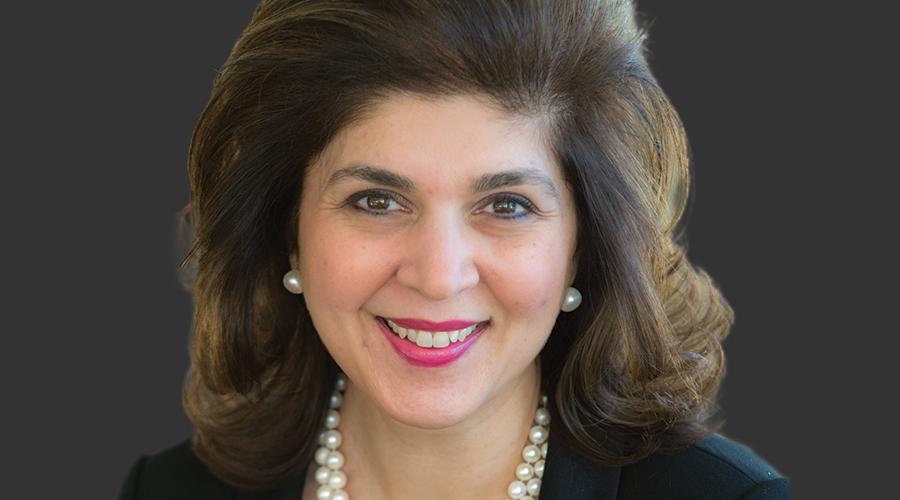-

Hear from Professor Monica Toft
Learn how Professor Monica Toft is shaping the study of global affairs and diplomacy at Fletcher.
Hear from Prof. Toft -

Explore Fletcher academics in action
Fletcher Features offers insights, innovation, stories and expertise by scholars.
Get global insights -
Get application tips right from the source
Learn tips, tricks, and behind-the-scenes insights on applying to Fletcher from our admissions counselors.
Hear from Admissions -

Research that the world is talking about
Stay up to date on the latest research, innovation, and thought leadership from our newsroom.
Stay informed -
Meet Fletcherites and their stories
Get to know our vibrant community through news stories highlighting faculty, students, and alumni.
Meet Fletcherites -

Forge your future after Fletcher
Watch to see how Fletcher prepares global thinkers for success across industries.
See the impact -

Global insights and expertise, on demand.
Need a global affairs expert for a timely and insightful take? Fletcher faculty are available for media inquiries.
Get in Touch
Shaping Policies to Counter Violent Extremism

Farah Pandith, F95, H18
Farah Pandith, F95, H18 is a builder. She has always been driven by a desire to create strong bridges across divides and utilize all elements of soft power. But she never dreamed she would pioneer a new approach to fighting the ideology of violent extremism.
“September 11th was a turning point for me,” she says. “I wanted to push back against the corrupt narratives of Al Qaeda and I wanted to serve my country.” On the frontlines of the work to fight the ideology of extremists, Pandith has served three American Presidents across nearly two decades since 9/11.
After graduating from Smith College, she was introduced to public service while working for the US Agency for International Development. There she learned the importance of grassroots programs and approaches. Graduate school was inevitable, as Pandith became increasingly passionate about foreign affairs during her time at USAID. “I wanted to understand more about the rest of the world,” she says. “I wanted to understand how the US could be an influence for good.”
Fletcher’s origin story — the reasons why it was founded with Harvard and Tufts — resonated with her. Pandith says, “It mattered to me to go to a school where solutions to conflicts were not only about war. Fletcher was born even before the League of Nations. Thought leaders set out with purpose to create a place where diplomacy and law were foundational tools for understanding foreign affairs. I wanted to go to THAT school.”
As a student, Pandith appreciated the varied perspectives of classmates from different countries. She found conversations at Fletcher enriching and treasures the deep connections she made. Candid discussions of difficult topics inspired her to examine her own assumptions, open herself up to other opinions, and ask uncomfortable but necessary questions.
She recalls the mentorship of faculty, noting, “Dr. Dick Shultz is a legend and an inspiration. He was so fundamental to my career and how I understood low-intensity conflicts. He was unbelievably supportive of my nascent interest in “crazy” topics. He was the best kind of professor. He pushed you and made you try harder. He made you ask different kinds of questions.”
Dr. Shultz and Dr. Sujata Bose encouraged Pandith to do her capstone project on Kashmir, widely considered one of the most dangerous places in the world at the time. Securing academic grants for her studies, she embarked on what she calls, a “James Bond summer.” She interviewed government officials from both India and Pakistan as well as militants on the ground in Srinagar. “That summer was instrumental in forming my understanding of extremism. It was the first time I saw people with passionate convictions that were ready to use violence in the name of those convictions,” she says.
Immediately following the September 11 attacks, Pandith returned to government serving again at the United States Agency for International Development and in senior roles at the National Security Council, and the US Department of State where she helped to build a new approach to the ideology of extremists called Countering Violent Extremism. “CVE is all about soft power and the grassroots. How can you fight an ideology of hate and extremism with just hard power?” she asks.
Later, Pandith was appointed the first-ever Special Representative to Muslim Communities by Secretary of State Hillary Rodham Clinton, a position created for her. It was in this role that she best utilized her Fletcher education. “The intersectionality of fields and the interdisciplinary course of study highlighted the importance of learning this way,” Pandith said.
“Diplomacy, security studies, policy and so on – it all came together in the work as Special Representative.” She engaged youth in dialogue, listened to their perspectives, and built new programs based on civil society needs and countering narratives pushed by extremist groups. For Pandith, diminishing the appeal of the ideology as a tool to defuse the global threat of violent extremism, continues even while out of government.
Pandith has supported Fletcher in many ways since graduating, including serving on the Board of Advisors and leading the Fletcher Club of Boston for many years. A thought leader, former diplomat, and author, Pandith continues to challenge stereotypes and “the usual” way of doing things to find innovative solutions for complicated policy problems.
Her book on defeating extremism is: How We Win: How Cutting-Edge Entrepreneurs, Political Visionaries, Enlightened Business Leaders and Social Media Mavens Can Defeat the Extremist Threat.

